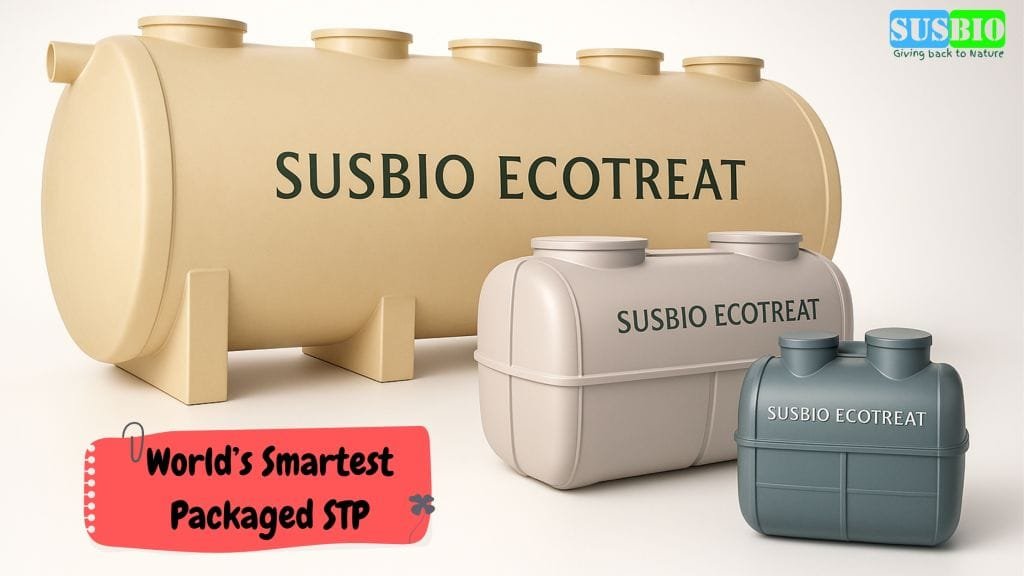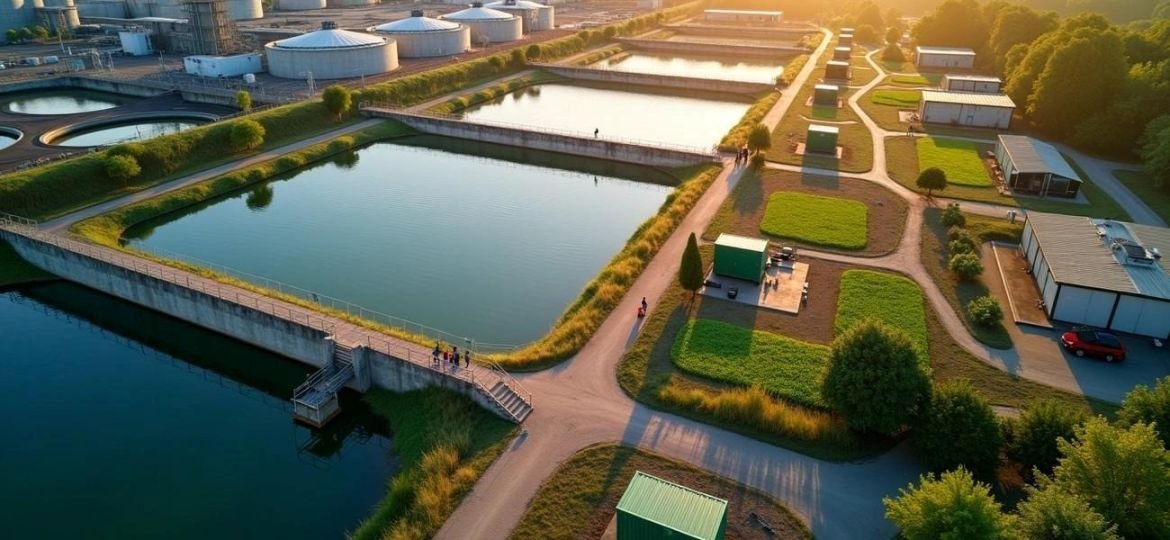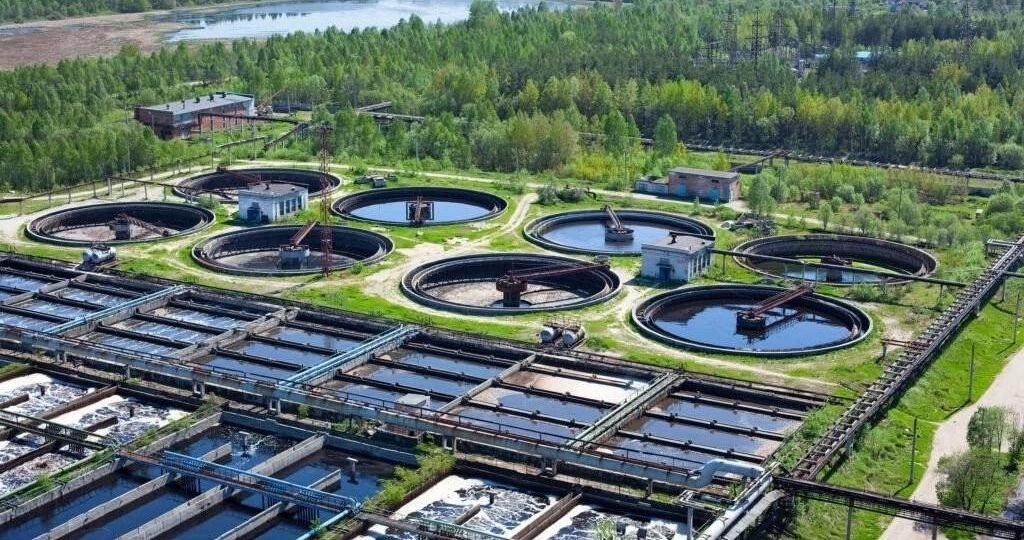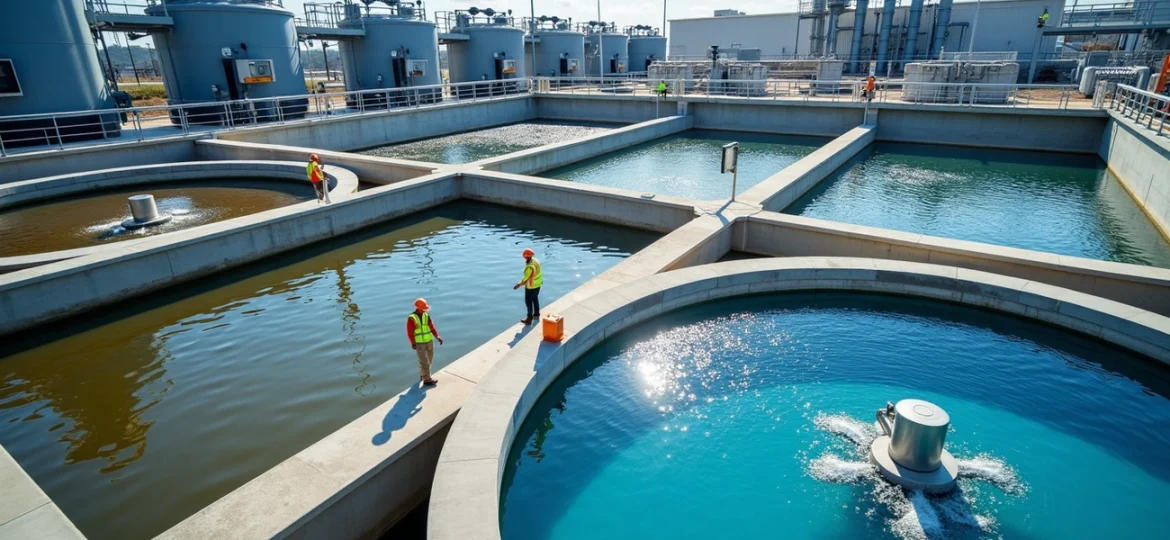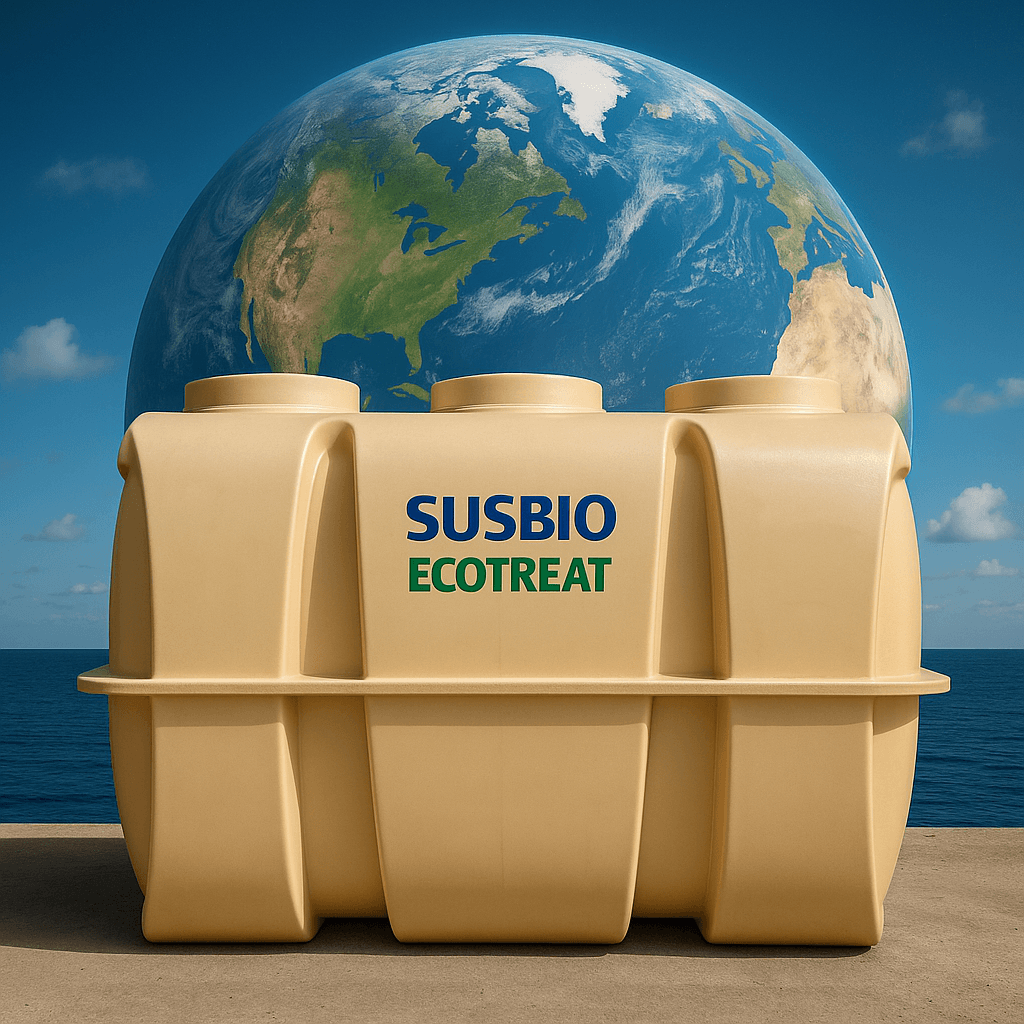Resorts are renowned for their luxury, comfort, and relaxation. However, managing their wastewater poses a major environmental challenge behind the scenes of their beautiful landscapes and excellent service. The management of wastewater is a formidable task not only for resorts worldwide but also for housing complexes, gated communities, and industrial facilities, particularly in developing countries and emerging economies where municipal infrastructure for sewage treatment may be lacking. Untreated or poorly managed effluents not only jeopardize local ecosystems and water quality but also tarnish the pristine image that resorts strive to uphold. In this blog, we dive into the critical issues resorts encounter in wastewater management, exploring the transformative benefits of integrating effective sewage treatment plants (STPs). From regulatory pressures to operational complexities, we uncover why investing in high-quality prefabricated STPs emerges not only as a regulatory necessity but also as a cornerstone of responsible resort management in the 21st century, aligning with sustainable development goals and corporate sustainability initiatives.
Challenges Faced by Resorts in Wastewater Management
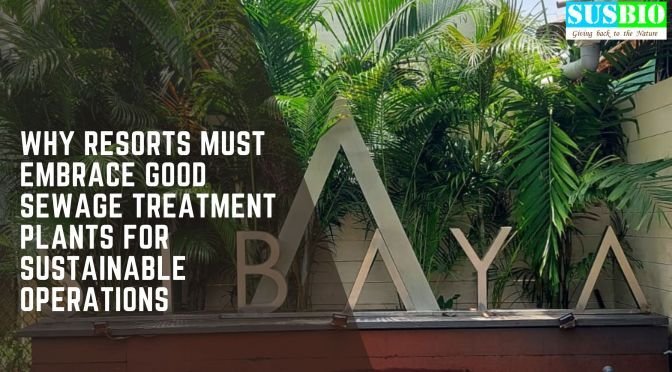
- Environmental Impact: Resorts are often located in ecologically sensitive areas, such as coastal regions or pristine landscapes. Improperly treated wastewater can introduce pollutants like nutrients, pathogens, and chemicals into local water bodies. This pollution can disrupt aquatic ecosystems, harm marine life, and degrade water quality, compromising the very natural beauty that attracts guests. Moreover, inefficient wastewater management can contribute to increased carbon emissions, further exacerbating environmental concerns. The challenge is not limited to resorts; industrial applications and manufacturing facilities face similar issues with their effluents.
- Regulatory Compliance: Governments and environmental agencies impose strict regulatory requirements on wastewater discharge to protect natural resources and public health. Non-compliance can result in hefty fines, reputational damage, and even legal sanctions, posing significant financial and operational risks. This is particularly challenging in emerging economies where regulations may be rapidly evolving, affecting not just resorts but also gated communities and industrial settings.
- Operational Costs: Managing wastewater involves substantial operational expenses, including the installation, maintenance, and energy consumption of treatment systems. Conventional sewage treatment infrastructure can be particularly costly; that’s why these days resorts and housing complexes are preferring prefabricated/packaged Sewage Treatment Plants (STPs) to save more on manpower and operational costs while ensuring cost-effectiveness. The initial investment costs for these systems are often offset by long-term savings.
- Space Limitations: Many resorts operate within limited areas, especially those nestled in scenic but compact environments. Traditional wastewater treatment systems often require significant land area for installation and operation, posing challenges for resorts with constrained space availability. Adopting effective and efficient prefabricated STPs comes as a savior here, offering a compact footprint solution. Factory-assembled and skid-mounted MSTPs (Modular Sewage Treatment Plants) are particularly suitable for such scenarios.
- Seasonal Variability: Resorts often experience fluctuating occupancy levels throughout the year, leading to varying wastewater volumes and compositions. Managing these seasonal fluctuations effectively requires flexible wastewater management solutions capable of adjusting to changing operational demands without compromising treatment efficacy or environmental compliance. This challenge extends to other sectors like construction camps and remote communities, where population fluctuations are common.
- Site-Specific Considerations: Each resort location presents unique challenges, from varying soil conditions to climate variability. These factors can significantly impact the design and operation of wastewater treatment systems, necessitating tailored solutions that can adapt to local environmental conditions.
Benefits of Using STPs in Resorts
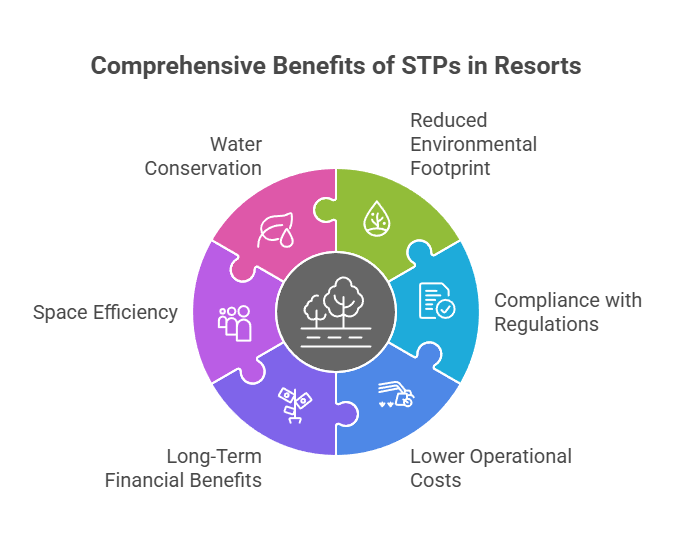
- Reduced Environmental Footprint: STPs treat wastewater to stringent regulatory standards, significantly reducing pollutants before discharge. This helps preserve local water quality, protect ecosystems, and mitigate the resort’s environmental impact. Advanced treatment technologies in modern STPs can effectively remove suspended solids and organic pollutants, ensuring that the treated effluent meets or exceeds quality parameters. The treatment processes typically involve primary treatment, secondary treatment, and in some cases, tertiary treatment, depending on the effluent characteristics and discharge requirements.
- Compliance with Regulations: By ensuring compliance with environmental regulations, resorts avoid fines, penalties, and legal repercussions, demonstrating a commitment to sustainable practices. STPs with performance guarantees provide resorts with confidence in meeting discharge limits consistently, a benefit that extends to industrial applications and residential settings as well.
- Lower Operational Costs: Modern STPs utilize advanced technologies like membrane filtration, biological treatment using microorganisms, and energy-efficient processes, reducing energy consumption and operational expenses compared to conventional treatment methods. The use of anaerobic processes in some STP designs further enhances energy efficiency. Careful management of chemical usage in treatment processes can also contribute to cost savings.
- Long-Term Financial Benefits: Despite initial capital expenditure, STPs offer long-term savings through reduced water and energy bills, lower maintenance requirements, and minimized risks associated with non-compliance fines and environmental damages. The cost-effectiveness of prefabricated STPs makes them an attractive option for resorts looking to optimize their wastewater management budget. Regular routine maintenance ensures operational continuity and extends the system’s lifespan, further enhancing the return on investment.
- Space Efficiency: Compact and modular STP designs are available for resorts with limited space, offering flexible installation options that optimize land use and operational footprint. Some innovative designs even utilize shipping containers or skid-mounted systems for easy installation and relocation if needed. This flexibility and scalability make prefabricated STPs ideal for various settings, from urban environments to remote locations.
- Water Conservation: By producing high-quality treated effluent, STPs enable resorts to reuse water for irrigation purposes, groundwater recharge, or other non-potable applications, contributing to overall water conservation efforts. This aspect of STPs is particularly valuable in areas facing water scarcity or those committed to environmental consciousness.
By leveraging STPs, resorts not only address critical environmental challenges associated with wastewater management but also capitalize on opportunities to enhance operational efficiency, guest satisfaction, and long-term sustainability. The SUSBIO ECOTREAT system addresses these concerns effectively, serving as a decentralised solution for wastewater management. Its robust design, made from corrosion-resistant materials, ensures durability and efficiency, ideal for modern sewage treatment plants. The dual treatment process, incorporating both anaerobic and aerobic methods, guarantees thorough purification of wastewater, removing pollutants and contaminants effectively.
As a leading Sewage Treatment Plant manufacturer committed to global environmental stewardship, SUSBIO ECOTREAT aligns with resorts’ goals of sustainable development and responsible tourism. The system’s UV disinfection capabilities ensure that the treated effluent is safe for various applications, further enhancing its utility. By choosing SUSBIO ECOTREAT, resorts not only enhance their wastewater management capabilities but also reinforce their commitment to preserving natural resources and safeguarding local ecosystems.
In conclusion, the SUSBIO ECOTREAT Advanced Prefabricated Sewage Treatment Technology stands out as an indispensable choice for resorts, housing complexes, and industrial facilities looking to overcome wastewater management challenges effectively. It not only meets regulatory standards and reduces operational costs but also supports sustainable practices, making it a strategic investment for the long-term environmental and financial health of resorts worldwide. With its proven technologies and continuous monitoring capabilities, SUSBIO ECOTREAT represents a significant step forward in resort wastewater management, contributing to broader sustainable development goals in the hospitality industry and beyond.
Frequently Asked Questions
1. What types of sewage treatment plants (STPs) are best suited for resorts?
Resorts usually prefer Compact Modular STPs such as Membrane Bioreactors (MBR) or Sequencing Batch Reactors (SBR). These systems require less space and provide high-quality treated water, which can be reused for landscaping, flushing, or cooling.
2. How much space is needed to install an STP at a resort?
The space requirement depends on the capacity and technology. Advanced STPs like MBR and prefabricated packaged plants need significantly less space compared to conventional systems, making them ideal for resorts with limited land availability.
3. What are the main benefits of STPs for sustainable resort operations?
Environmental protection: Prevents water pollution and protects nearby ecosystems.
Regulatory compliance: Helps resorts meet local discharge norms and avoid penalties.
Cost savings: Reduces water procurement costs through reuse and minimizes sewage disposal fees.
4. Can treated wastewater from a resort STP be reused on-site?
Yes. Treated wastewater can be safely reused for landscaping, gardening, toilet flushing, cooling towers, and cleaning. This practice reduces freshwater demand and supports sustainable water management in resorts.
5. What are the maintenance requirements and operating costs for resort STPs?
Modern packaged STPs require minimal manual intervention but need regular checks, sludge removal, and basic servicing. Operating costs depend on the size and technology, but energy-efficient systems significantly reduce expenses in the long run.


